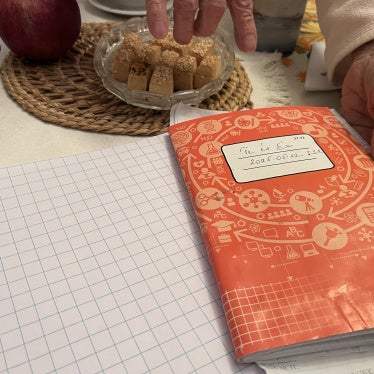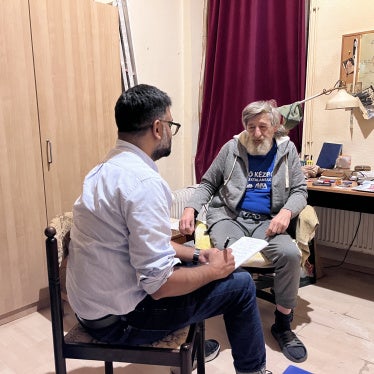Brussels, 7 November 2016
RE: Reject the EU-Uzbekistan textile protocol
Dear Members of the European Parliament Committee on International Trade (INTA),
We are writing to urge you as a member of the Committee on International Trade (INTA) not to give consent at this time to the EC-Uzbekistan partnership and cooperation agreement and bilateral trade in textiles (EU-Uzbekistan textile protocol) because of the persistence of forced labour in Uzbekistan.
Adopting the textile protocol now would contradict the principles of the European Union’s foreign policy, and ignore strong evidence of the government’s persistent and continued use of forced labour on a massive, nationwide scale in Uzbekistan.
Instead we call upon you to ensure that the European Parliament return to re-examine the protocol only when there is demonstrable and verifiable evidence of the eradication of forced labour in Uzbekistan.
Thanks in large part to the commitment of your Committee to the rights of the Uzbek people to be free from forced labor, and your commitment to ensuring that there is a level playing field in international trade, the textile protocol with the European Union was in 2011 postponed for consideration until “ILO observers, have been granted access by the Uzbek authorities to undertake close and unhindered monitoring and have confirmed that concrete reforms have been implemented and yielded substantial results in such a way that the practice of forced Labor and child Labor is effectively in the process of being eradicated at national, viloyat and local level…”
Shortly after the European Parliament’s 2011 decision, the Uzbek government dropped its longstanding opposition to monitoring of the cotton harvest by the International Labor Organization and began to engage. We welcomed the signature of by the government of the Decent Work Country Programme in April 2014, in which it committed to work with the ILO to apply labor conventions.
Yet, in 2016, we are still to see these commitments honored.
Anti-Slavery International, the Association for Human Rights in Central Asia, the Cotton Campaign, Human Rights Watch, and the Uzbek-German Forum for Human Rights have documented how in the first month of the 2016 harvest the mass mobilization of hundreds of thousands of adults for the cotton harvest continues, as have attacks on human rights defenders, civil society, and even two foreign journalists who attempted to monitor conditions in the fields.
Despite the government’s proclamation to stop the practice, Human Rights Watch has received a steady flow of evidence to the contrary. Quotas for cotton production were once impose again this year and there is no indication that the threat of prosecution for non-fulfilment of these quotas has been reduced.
Thousands of students from universities of the Andijan region, in the Fergana, Namangan, Jizzakh, Surkhandarya and Kashkadarya regions were sent to pick cotton. Screenshots of text messages from Kokand college and Gulistan State University show the summons ordering students to the cotton harvest. While university directors denied that the students were coerced to go, some told human rights monitors prior to their departure that they had to sign “a letter of voluntary participation in the cotton harvest.”
As in prior years, the forced labor system is organized through a clear chain of command from the top of the government to regional governors and down to administrators of public institutions. The government forces teachers, doctors and other public-sector workers to pick cotton under threat of dismissal. Local government administrations have to meet the production quota requirements. It is at this level where the pressure is brought to bear as regional governors need to demonstrate compliance with the central government’s demands.
We were pleased to note that as a result of international pressure since 2013 children have not been forced to pick cotton on a nationwide scale, and child labor has effectively declined. Yet, local officials reportedly still resort to forced child labor out of a need to fulfil their quotas.
Since 2014 we have received steady reports of extortion linked to the cotton harvest. Authorities extorted contributions from domestic and multinational businesses, payments from individuals to avoid field labor, and payments from forced laborers for food, transportation, and unmet quotas.
In addition, the Uzbek authorities routinely retaliate against independent observers and human rights defenders for reporting about forced labor. On October 6, two French journalists, along with an Uzbek journalist Timur Karpov and Elena Urlaeva were detained for several hours while documenting forced labor in the cotton fields.
The Uzbek government has clearly not met the conditions set out by the European Parliament in 2011, and the ILO is yet to confirm “that concrete reforms have been implemented and yielded substantial results in such a way that the practice of forced labor and child labor is effectively in the process of being eradicated.” The evidence is unequivocal - so far we have seen merely a change in strategies aimed at maintaining and concealing the continued use of forced labor rather than substantial results in its eradication.
We are yet to see the tangible indicators of change, such as:
- Discontinuation of the production quota
- Increase in payment to cotton pickers, so that willing seasonal workers can be recruited through proper recruitment processes
- Proper investigation and prosecution of officials who violate Uzbek national laws against forced labor
- An end to harassment of independent monitors
- Official involvement of national and international civil society actors, in monitoring the remaining weeks of the harvest.
Entering now into the textile protocol also risks undermining the EU Flagship Initiative on responsible management of the supply chain in the garment sector. Since the introduction of the UN Guiding Principles on Business and Human Rights, more and more businesses have been calling on governments to honor their obligation to protect the rights of workers through introducing and enforcing laws.
Businesses are by nature risk averse and it is rare that businesses come out and advocate boycotts. Yet hundreds of European businesses signed a pledge not to knowingly source cotton from Uzbekistan. They did so because of the mass scale state sponsored nature of forced labor. EU businesses and investors do not want to put themselves at risk of violating national and European legislation by trading in forced labor produced goods.
For the above reasons, we believe that entering into the textile protocol with Uzbekistan now would have an adverse impact on human rights. We therefore ask you to withhold your consent until such time that there is demonstrable evidence of the government’s political will to eradicate forced labor and its willingness to allow human rights groups, both local and international, participate in monitoring the harvest.
Sincerely,
Civil society:
- American Federation of Labor and Congress of Industrial Organizations (AFL-CIO)
- Anti-Slavery International
- Association for Human Rights in Central Asia (AHRCA)
- Corporate Responsibility - CORE
- Human Rights Watch
- India Committee of the Netherlands
- INKOTA
- International Federation for Human Rights (FIDH)
- International Labor Rights Forum (ILRF)
- International Partnership for Human Rights (IPHR)
- International State Crime Initiative (ISCI)
- Observatorio de Responsabilidad Social Corporativa
- Seventh Generation Interfaith Coalition for Responsible Investment
- Solidarity Center
- Stop Child Labour
- Stop The Traffik
- La Strada International
- Sunshine Coalition
Private sector:
- Esprit
- Jade Marketing Group
- Sonen Capital








